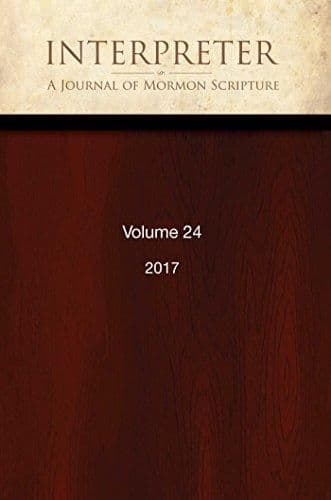Journal
Serpents of Fire and Brass: A Contextual Study of the Brazen Serpent Tradition in the Book of Mormon

Title
Serpents of Fire and Brass: A Contextual Study of the Brazen Serpent Tradition in the Book of Mormon
Publication Type
Journal Article
Year of Publication
2022
Authors
Rappleye, Neal (Primary)
Journal
Interpreter: A Journal of Latter-day Saint Faith and Scholarship
Pagination
217-298
Volume
50
Abstract
The story of the Israelites getting bitten in the wilderness by “fiery serpents” and then being miraculously healed by the “serpent of brass” (Numbers 21:4–9) is one of the most frequently told stories in scripture — with many of the retellings occurring in the Book of Mormon. Nephi is the first to refer to the story, doing so on two different occasions (1 Nephi 17:41; 2 Nephi 25:20). In each instance, Nephi utilizes the story for different purposes which dictated how he told the story and what he emphasized. These two retellings of the brazen serpent narrative combined to establish a standard interpretation of that story among the Nephites, utilized (and to some extent developed) by later Nephite prophets. In this study, each of the two occasions Nephi made use of this story are contextualized within the iconography and symbolism of pre-exilic Israel and its influences from surrounding cultures. Then, the (minimal) development evident in how this story was interpreted by Nephites across time is considered, comparing it to the way ancient Jewish and early Christian interpretation of the brazen serpent was adapted over time to address specific needs. Based on this analysis, it seems that not only do Nephi’s initial interpretations fit within the context of pre-exilic Israel, but the Book of Mormon’s use of the brazen serpent symbol is not stagnant; rather, it shows indications of having been a real, living tradition that developed along a trajectory comparable to that of authentic ancient traditions.
For a summary of this article, see Interpreting Interpreter: https://interpreterfoundation.org/interpreting-interpreter-ancient-fiery-serpents/
Subject Keywords
Bibliographic Citation
Terms of use
Items in the BMC Archive are made publicly available for non-commercial, private use. Inclusion within the BMC Archive does not imply endorsement. Items do not represent the official views of The Church of Jesus Christ of Latter-day Saints or of Book of Mormon Central.